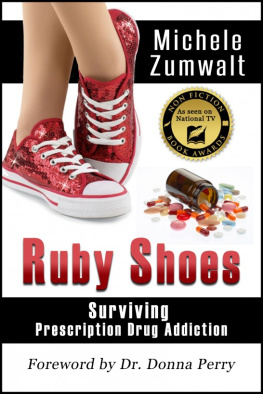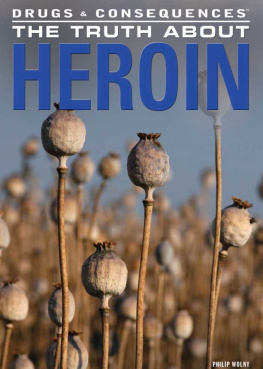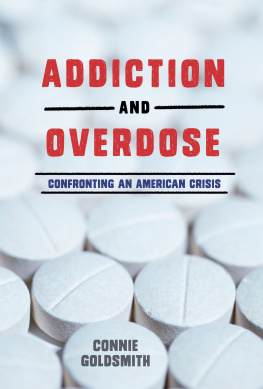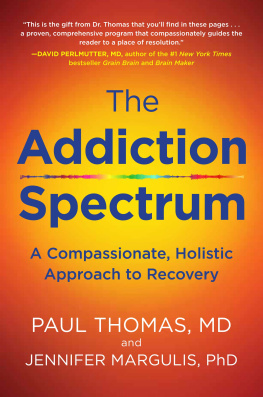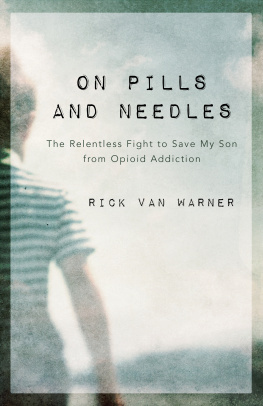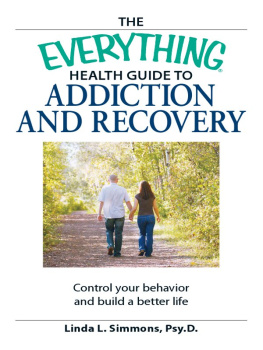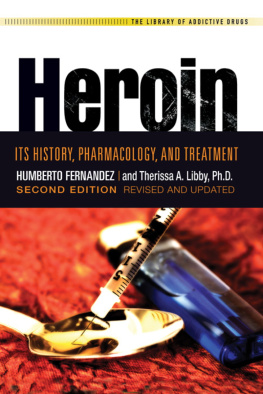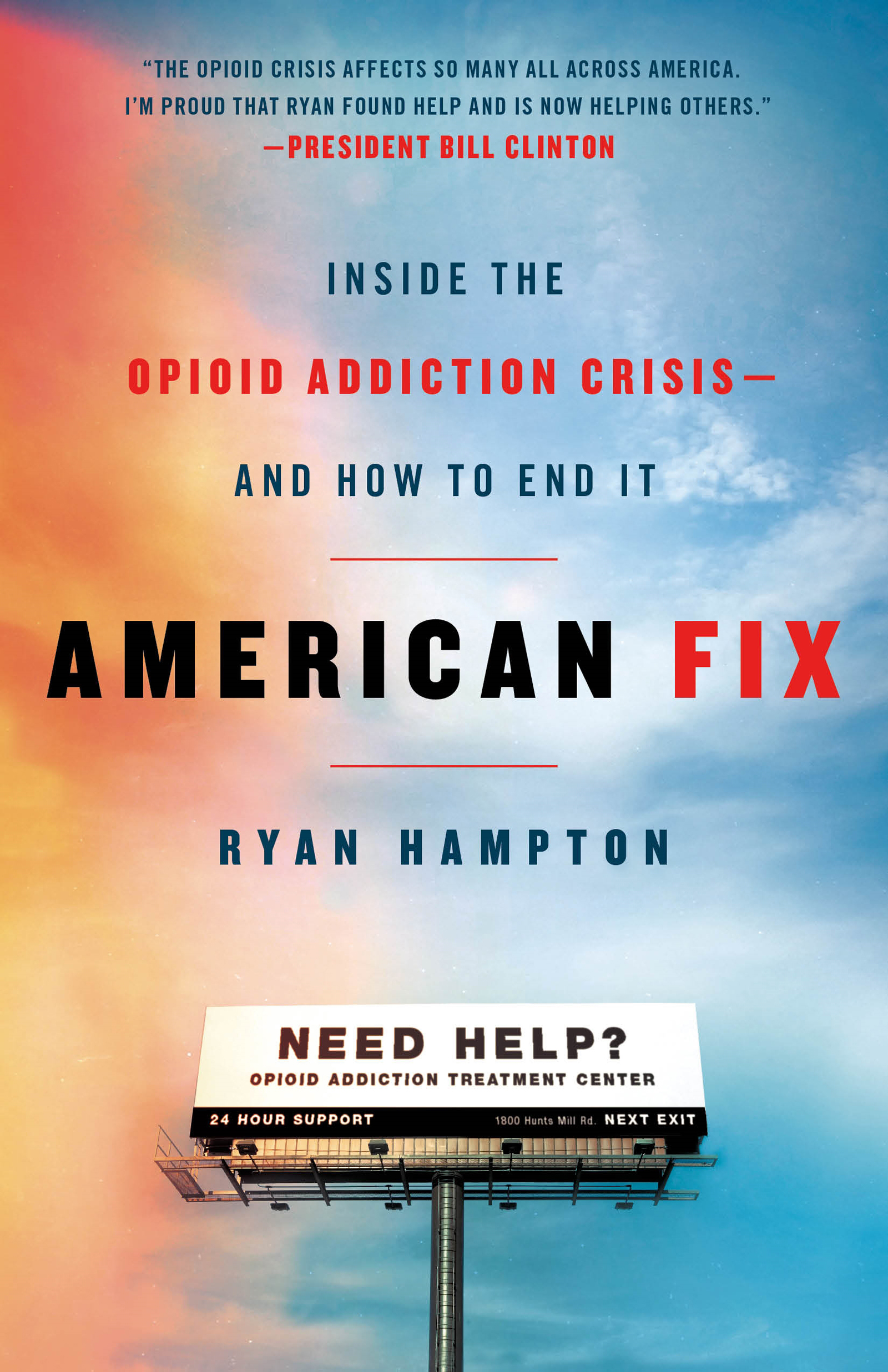Contents
Guide
Pagebreaks of the print version

The author and publisher have provided this e-book to you for your personal use only. You may not make this e-book publicly available in any way. Copyright infringement is against the law. If you believe the copy of this e-book you are reading infringes on the authors copyright, please notify the publisher at: us.macmillanusa.com/piracy.
For Mom, Lorraine, and Katy you never gave up on me. And to everyone else on this journeythank you for showing me the way.
WHATS THE TRUE SCOPE OF THE OPIOID CRISIS? WHEN I try to describe it to someone who hasnt experienced it themselves, I find myself falling back on the terms we use to encompass genocide, natural disasters, and global war. Its a tsunami of loss.
Its so big that words fail to describe it.
Imagine that, every three weeks, 9/11 happens again. Thats how many people are dying due to opioids in this country. Or, imagine that a full jetliner crashes every three days: every man, woman, and child on board is erased. Dead. Gone. Thats what the opioid crisis is doing. But its not just in one city: Its everywhere, killing people from every walk of life. And were not hearing those planes hit the ground. Most people go about their lives without thinking twice about these catastrophic losses. They are unaware of the tragedy happening all around them.
In 2017 alone, according to the New York Times , about as many Americans are expected to die this year of drug overdoses as died in the Vietnam, Iraq, and Afghanistan wars combined. Thats an increase from 2016, when 59,000 lives were lost to drug-related causes. Drug overdoses are now the leading cause of death for Americans under the age of fifty. Its a massive crisis, gaining momentum every day.
If we do not take action now, predictors show that another 500,000 people could die of opioid-related causes within the next decade. Half a million people. Thats a sharp increase, even from the record death tolls we experience today. Easy access to synthetic opioids, a new generation of extremely potent prescription painkillers, and the prevalence of fentanyl all contribute to the daily body count. Ultra-strong painkillers have become the norm in our country, and we take them at obscenely high rates. In 2016, 236 million prescriptions were written for opioids in the United States. Thats about one for every American adult.
As Americas dependency on prescription painkillers has increased, our overdose rates have grown as well. Thats not a coincidence. The pharmaceutical companies that dump millions of dollars into our advocacy programs, launder money through local and national nonprofits, and buy elected officials in every branch of government have created a national drug crisis. Our dependency on those pain pills was supposed to garner higher profits. And it didbut it also spiraled into a massive public health crisis, spurred by irresponsible prescribers, ignorant lawmakers, and ineffective treatment centers.
The American drug epidemic has further exposed the deep inequity of race, class, and gender in our country. Who gets help for their substance use problems, when , and how are all reliant on how white and well-off they are. Although addiction is a universal problem in America, we dont have universal care to combat it. Were on the Titanic , and there are no seats in the lifeboats for the people in steerage. Soon well all be underwater. Thats why we havent stopped the crisis in its tracks: The people who have the most power to make noise, call for help, and effect change get just enough help to maintain the status quo. The system is set up to privilege them, but that help doesnt trickle down. The rest of us are too poor, sick, and ashamed to take on the deeply flawed system that criminalizes addiction, pushes Big Pharmas agenda, and doesnt educate people about harm reduction or recovery options.
We cannot stop a crisis that we do not understand. American Fix will help you understand what the opioid crisis is, why it is happening, who it affects, and how we can stop it. We must find a solution; this is our Black Plague. Its our AIDS crisis. It is real, and we are sinking fast. If we are going to survive, we cant wait.
Its easier to explain and express whats happening inside the opioid epidemic through personal stories. After all, were not statistics. Were people.
I walked into treatment for the last time on Thanksgiving Eve, 2014. It wasnt exactly a Kodak moment. I was terrified, exhausted, and sick of myself. My addiction had ruined every aspect of my life. I wasnt proud of who I had become. As I filled out the intake form, I swore Id never speak about this moment or the years leading up to it ever again. I wanted to get help, get my life back together, and just move forward. I didnt ever want to think about what Id been through, much less write a book about it.
But as I began to heal from my addiction and lost some of the people closest to me to overdoses, I became more willing to share my experience. I learned that my story was a jumping-off point. It created connection and community. So I started reaching out. Yet every time I spoke up, many people told me to keep my mouth shut. They said I had nothing to offer. They lectured me to wait until I was ready. But when would that day come? Ultimately, it wasnt up to them. It was up to me. I stopped waiting for permission to tell my story. And when I began speaking up, it opened the door for many others to do the same.
However, my recovery didnt begin and end with me . If anything, it opened my eyes to the extreme difficulties my peers were experiencing. Recently, I found out that Mikey, one of my best friends whod been sober for three years, had relapsed on heroin. He was kicked out of his sober living and was couch surfing. That hit me hard, right in the gut. Mikey was my first roommate in sober living. We were in rehab together multiple times, both trying for years to reach the other side of our addiction. Mikeyd just had a kid. Things were going really well for him. But then his relationship soured, and he picked up something to cope with his emotional pain. Without insurance, his options for treatment were incredibly limited.
Although I talk to literally hundreds of people every day about their friends, kids, and family members, and speak to groups about recovery and advocate for policy reform, I was totally unprepared to deal with Mikeys relapse. I was dumbfounded. I panicked. I found Mikey and put him in touch with his mom, and only then did he feel comfortable asking for help.
He was homeless. At the bottom again. But his voice was so ashamed and scared. I could tell what it had taken for him to actually admit he needed help.
If Mikey hadnt made that callif his mom hadnt talked to him firstif his family hadnt had the cash to cover part of his treatmentif he hadnt qualified for a scholarship at the rehabif I hadnt been able to jump into my car and pick him upwhat would have happened? What happens to people who dont have an immediate safety net in place?
We know what happens. They dont make it.
I have lost many friends to the disease of addiction, and each time, its like another part of my heart is ripped out of my chest. It hurts. But there are certain friends, like Mikey, whose death would permanently alter me. My ability to love, to be close to others, would change forever. I didnt want to feel that pain. But because I feel it, and because I know so many moms and dads in America are feeling it right now about their own children, I need to share this story.


